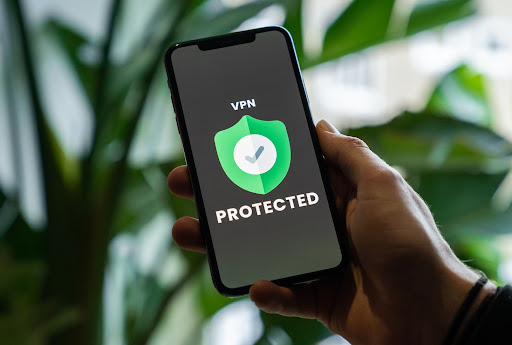For every business, data security should be treated as one of the top priorities. With the threats posed by cyber-attacks and data breaches on the rise, having proper measures in place to protect your customers’ data is essential. Not only does it ensure their safety but also guards your organization against costly damages from potential lawsuits. That’s why organizations must take smart steps to keep their current information secure while implementing best practices for managing future data assets. In this blog post, we will be exploring several effective ways you can enhance your company’s security infrastructure and make sure customer information remains protected at all times.
Importance of proper document disposal for data security
While most businesses are now transitioning to digital storage for improved efficiency, it is important to recognize that paper records can still hold valuable information. If these records were to end up in the wrong hands, they could be exploited for malicious purposes. Therefore, it is crucial for organizations to establish a comprehensive and secure document destruction and recycling plan. This plan should encompass not only regular paper shredding but also the appropriate disposal of electronic devices that may store sensitive data. By implementing such practices, businesses can effectively mitigate the risks of data leaks and safeguard their customers’ information from potential breaches. Additionally, this demonstrates a commitment to responsible data management and instills trust in customers, ultimately enhancing the reputation and credibility of the organization.
Establish a security policy and educate staff on the importance of data security
Creating a comprehensive security policy is an essential step in protecting your business’s data. This document should outline specific guidelines and protocols that employees must follow to ensure the safety of sensitive information. It should also include procedures for handling, storing, and disposing of customer data. Once the security policy has been established, you need to educate all staff members on its importance and their role in upholding it. This includes training employees on how to identify potential threats and how to handle sensitive data appropriately. Regular training sessions should be conducted to keep the staff updated on new security measures and reinforce the importance of data security. Establish a clear security policy and educate your staff to proactively prevent data breaches and safeguard your customers’ information.
Implement a secure network system to protect data from external access
A secure network system should be implemented to ensure that sensitive information is only accessible to authorized personnel. This can include measures such as firewalls, encryption techniques, and virtual private networks (VPNs) for remote employees. Regularly updating passwords and limiting access to certain data are also important steps in securing your network. Additionally, conducting regular security audits to identify any vulnerabilities and addressing them promptly is essential in maintaining a secure network system.
 Ensure that physical devices used for data storage are properly protected with passwords and encryption
Ensure that physical devices used for data storage are properly protected with passwords and encryption
Protect physical devices that are used for data storage. This includes laptops, tablets, and external hard drives that may contain sensitive customer information. These devices should be password-protected and encrypted to prevent unauthorized access in case they are lost or stolen. It’s also important to regularly update these passwords and ensure that only authorized employees have access to these devices. In the event of an employee leaving the company, all passwords should be changed immediately to prevent any potential data breaches. Encryption is another crucial step in securing physical devices. It scrambles the data on the device, making it unreadable for anyone without the decryption key. This adds an extra layer of security and prevents sensitive information from being accessed even if the device is compromised. Regularly backing up data from these devices is also recommended in case of any technical failures or security breaches.
Invest in firewalls and antivirus software to safeguard against malicious attacks
As cyber-attacks become more sophisticated, businesses must invest in advanced firewalls and antivirus software to protect their networks. Firewalls act as a barrier between the internal network and the external internet, monitoring incoming and outgoing traffic to identify any potential threats. They can also be configured to block certain websites or applications that may pose a risk to data security. Antivirus software works by scanning files and programs for any potential malware or viruses that could compromise the system. By regularly updating firewalls and antivirus software, businesses can protect their networks from malicious attacks and prevent sensitive data from being compromised. It’s also essential to conduct regular security checks using these tools to identify any vulnerabilities and address them promptly. Also, make sure all employees have access to this software on their work devices and are trained on how to use it effectively.
Monitor online activities to detect potential breaches of security
Monitoring online activities is another crucial step in maintaining data security. It involves regularly checking and analyzing system logs and network traffic to identify any potential breaches of security. By tracking user activity, businesses can detect any unauthorized access attempts or abnormal behavior that may indicate a cyber-attack in progress. This includes monitoring email communications, website usage, and file transfers to ensure that sensitive information is not being shared outside of the organization. Regularly monitoring online activities also allows for prompt detection and response to any potential breaches, minimizing the potential damage. Businesses should have a dedicated team or service in place to monitor online activities and investigate any suspicious behavior. Moreover, implementing strict access controls and limiting employee privileges can help prevent unauthorized access and reduce the risk of data breaches. Businesses can prevent security threats by proactively monitoring online activity.
Data security is a critical aspect of any business’s operations, regardless of its size or industry. With cyber-attacks becoming more frequent and sophisticated, organizations must take proactive measures to safeguard their sensitive information and protect their customers’ data. This includes establishing secure networks, implementing strict access controls, regularly training and educating employees on data security best practices, and investing in advanced firewalls and antivirus software. Additionally, proper document disposal, physical device protection, and monitoring of online activities are crucial to mitigating the risks of data breaches. By following these measures, businesses can not only protect their customers’ information but also enhance their reputation as a responsible and trustworthy organization.

